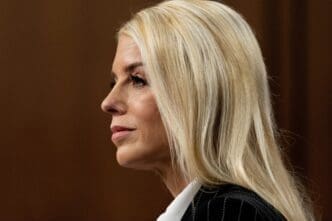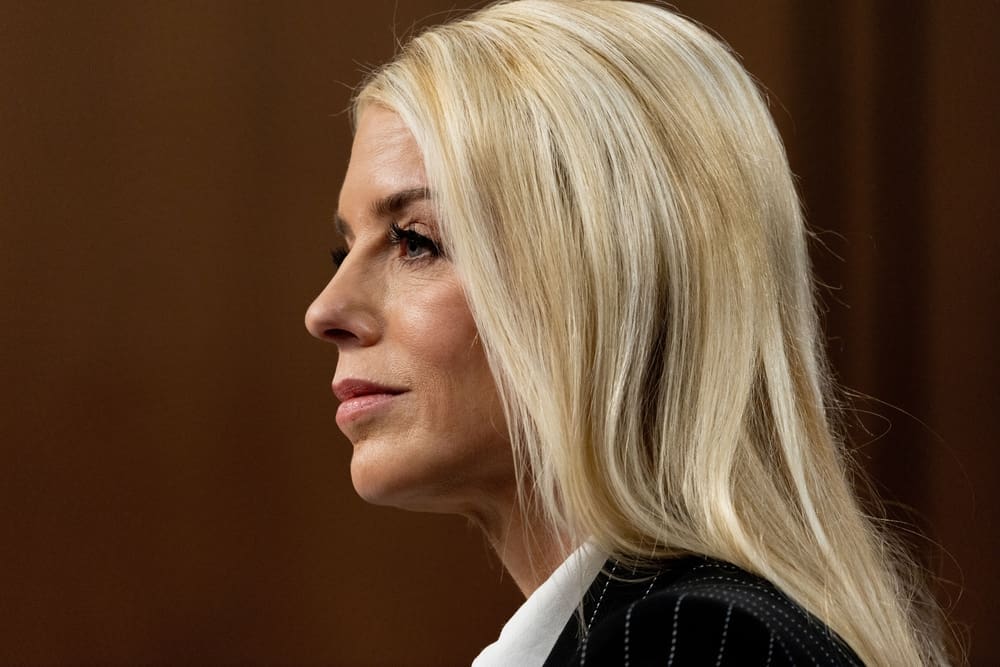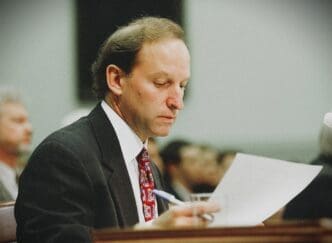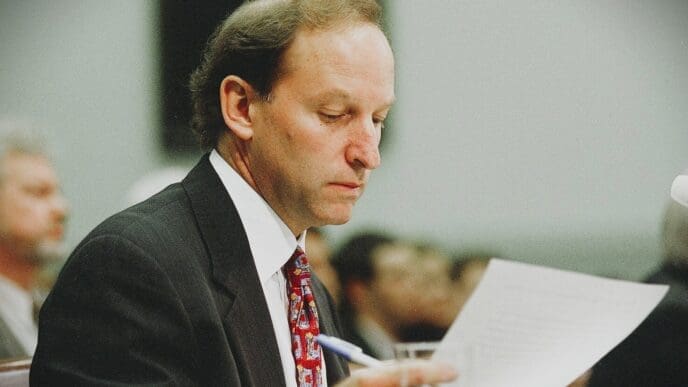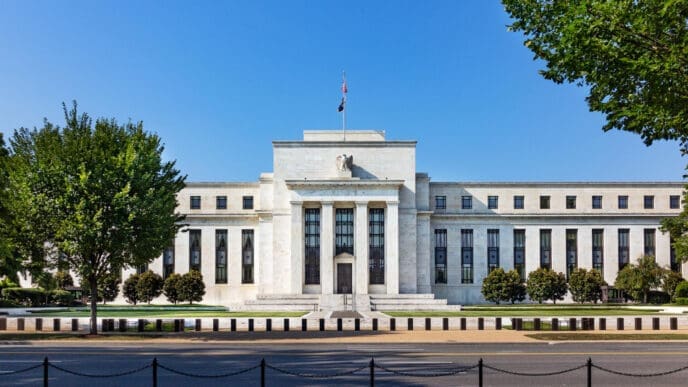NEW YORK – For years, President Donald Trump masterfully cultivated a political movement fueled by a deep-seated distrust of official narratives and a fervent belief in dark, sprawling conspiracies. He cast himself as the singular hero who would expose the “deep state” and deliver long-awaited justice. Now, that very strategy is backfiring spectacularly, as the president finds himself on the wrong side of a conspiracy theory he helped inflame, facing an open revolt from his most loyal supporters over the government’s handling of the Jeffrey Epstein investigation.
The crisis erupted last week after the Justice Department and the FBI released a memo that systematically dismantled the explosive theories that have animated the MAGA base for years. The report concluded there was no evidence of a secret “client list” of powerful elites involved in the disgraced financier’s sex trafficking ring and reaffirmed that Epstein’s 2019 death in a federal jail cell was a suicide, not a murder.
The findings were a direct repudiation of the narrative Trump and his allies had been pushing. Instead of a bombshell, the administration delivered a dud. The reaction from MAGA world was immediate and furious. After being told for years to question everything and trust no one, Trump’s supporters are now refusing to accept the official story—even when it comes from Trump himself. The president’s attempts to downplay the issue and defend his attorney general have been met with cries of betrayal, creating an unprecedented loyalty test: are his followers loyal to him, or to the anti-establishment ideology he unleashed?
“The faulty assumption Trump and others make is they can peddle conspiracy theories without any blowback,” said Matt Dallek, a political scientist at George Washington University who studies modern American politics. “The Epstein case is a neat encapsulation that it is hard to put the genie back in the bottle.”
The political crisis is one entirely of Trump’s own making. Now that he is in charge of the federal government, the community he built to tear down institutions is coming back to haunt him, demanding answers he is either unable or unwilling to provide.
The fallout has thrown the administration into chaos, sparking bitter infighting among top law enforcement officials. The primary target of the base’s rage has been Attorney General Pam Bondi, who had previously dangled the prospect of explosive revelations, suggesting in February that a key document was on her desk awaiting review. Last week, she clarified she was referring to the general case file, not a specific client list, a clarification that supporters viewed as a stunning reversal.
The internal strife reportedly came to a head in a tense White House exchange between Bondi and FBI Deputy Director Dan Bongino. The feud has become so intense that Bongino, a prominent conservative voice, was reportedly considering resigning. The president’s own FBI Director, Kash Patel, who himself has a history of promoting conspiracy theories, was forced to take to social media to try to quell the rebellion, stating flatly, “The conspiracy theories just aren’t true, never have been.”
President Trump has tried to manage the crisis with a familiar playbook. He has mounted a robust defense of Bondi, chided reporters for asking about the issue, and attempted to call off his supporters on his Truth Social platform. “What’s going on with my boys and in some cases, gals? They’re all going after Attorney General Pam Bondi, who is doing a FANTASTIC JOB!” he wrote. “We’re on one team, MAGA, and I don’t like what’s happening.”
He also tried to redirect the anger, questioning why Democrats hadn’t released the files and claiming Epstein is “somebody that nobody cares about.” But these efforts have fallen on deaf ears. The base he conditioned to demand transparency is now demanding it from him. One follower responded directly to his post, assuring the president that the issue would not go away.
The anger was on full display at the Turning Point USA Student Action Summit in Tampa, Florida, a major gathering of conservative activists. Prominent conservative commentator Megyn Kelly called Bondi the “villain in this story,” accusing her of being a “tease” who failed to deliver. Rep. Anna Paulina Luna, a Florida Republican, issued a direct threat from the stage: “Pam, if you can’t do your job, we’ll find someone who will.”
The criticism extended beyond just Bondi. “I don’t think they’re telling us the truth about Epstein,” said YouTuber and conservative commentator Brandon Tatum. “I think that that guy was involved in something nefarious that implicates a whole lot of people.”
Even some of Trump’s closest former allies are urging him to change course. Retired Lt. Gen. Michael Flynn, his first-term national security adviser, pleaded with him publicly. “@realdonaldtrump please understand the EPSTEIN AFFAIR is not going away,” Flynn wrote, warning that failing to address the unanswered questions would make tackling other national challenges “much harder.”
Experts who study political movements say the Epstein case is uniquely challenging for Trump because, unlike other conspiracy theories, it is rooted in a horrific truth: a wealthy, well-connected financier did, in fact, spend years abusing young girls while largely escaping justice. This kernel of truth makes the desire for a larger, more sinister explanation incredibly powerful.
“The value of conspiratorial fabrications is that they help people get political power,” said Russell Muirhead, a political science professor at Dartmouth College, noting that Trump has exploited this “more ably than anybody probably in American history.” But without providing transparency on this issue, Muirhead warned, “large segments of his most enthusiastic and devoted supporters are going to lose faith in him.”
This dynamic of stoking and then trying to contain conspiracy theories is becoming a pattern for the administration. Just last week, Environmental Protection Agency Administrator Lee Zeldin appeared to endorse the “chemtrails” conspiracy theory on X, before linking to a new EPA webpage that essentially debunked it, a clear example of the fine line the administration is trying to walk.
As the outrage from the right dominates the political conversation, Democrats and other Trump rivals are taking advantage, calling for the release of all Epstein files and suggesting Trump could be resisting because he or his allies are implicated. Meanwhile, conservatives are openly worrying about the political cost. “For this to go away, you’re going to lose 10% of the MAGA movement,” right-wing podcaster Steve Bannon warned at the Turning Point summit.
The internal chaos also raises serious questions about the functioning of the government. “It’s possible at some time voters are going to notice the things they want or expect government to do aren’t being done because the people in charge are either incompetent or off chasing rabbits,” said Dallek, the George Washington University professor. “Who is fulfilling the mission of the FBI to protect the American people?”

